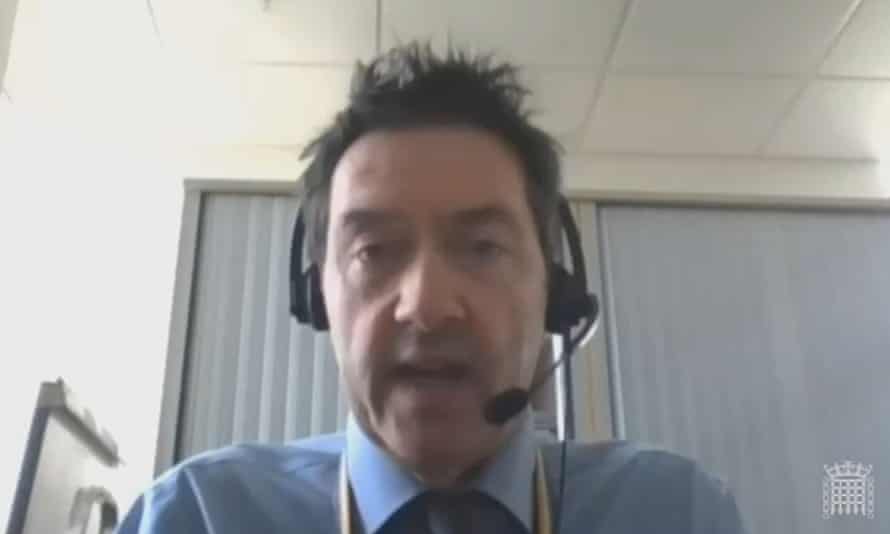Failures by successive governments to fix the care system led to countless avoidable care home deaths from Covid, England’s most senior social services leader has said.
James Bullion, who steps down next week as president of the Association of Directors of Adult Social Services, told the Observer he was angry at the unfairness of the effect of Covid on the poorest and most marginalised people in society and frustrated that ministers had still not laid out how they intended to reform social care.
“I suppose the anger is about the impact of the pandemic on the people who are most vulnerable and the poorest – rough sleepers, disabled people, older and frail people,” he said.
“When we look at the number of deaths, we see disproportionately more black and minority ethnic people affected, more people who’ve got social care needs, and so on. And that includes social care workers – it’s not very well known, but more social care workers have died than health workers. They are generally low-paid women and many of them from the black and minority ethnic population.”
Black men were four times more likely than white men to die if they caught Covid last year, according to the Office for National Statistics, and the risk to disabled women was 3.5 times that of non-disabled women. In the first six months of 2020, more than 93,000 care home residents died – 45.9% more than the year before.
“So that anger comes from the unfairness and the notion that actually much of that could have been avoided had social care not gone into the pandemic in a stressed state,” said Bullion, who is also executive director of adult social services for Norfolk county council.

Care homes and in-home care staff did not have access to PPE for months after the pandemic began, and there was a huge shortage of carers – more than 100,000 vacancies and 40% of staff left their jobs within a year. The care sector had faced heavy cuts since 2010 and needed at least an extra £7bn a year to recover after the pandemic, Bullion said.
“And we are coming out the other end with no proposals for change, to deal with those problems of high vacancies, high turnover, low pay and unmet need growing,” he said. “I certainly leave with the frustration of not having got government to break their silence on what reform looks like.”
Boris Johnson’s first pledge after becoming prime minister, made on the steps of Downing Street, was to “fix the crisis in social care once and for all”, including a promise that no one would need to sell their home to pay for care.
Last month he told MPs he would be bringing forward proposals later this year, but Bullion is concerned that the focus on the Cop26 climate conference in Glasgow, along with the need to repair the economy and clear the NHS backlog of operations may mean social care is once again overlooked.
“By and large, social care people know what needs to happen,” Bullion said. He believes there should be a national framework – possibly led by a figure with the authority of NHS England’s chief executive, Sir Simon Stevens – which allows care services to deal with unmet needs: older people without home help, people with learning disabilities left without support, and carers who never have a break.
That means recruiting more staff – vacancies have grown to 112,000. “We have 1.5 million people working in social care and in the next 10 years we’ll need another 500,000 as the population ages,” he said.
Although the government made a series of one-off payments to cover PPE and other pandemic costs last year, the sector needed a budget increase of at least £7bn, he said.
“If we’d had a quarter of the £37bn that’s been used on test and trace, that would have put us in a position where we would have transformed lives, we’d have had less risk, we’d have had fewer deaths,” Bullion said.
But there has been a silver lining to the pandemic. When the government told people with serious underlying health conditions to shield, it created a list of vulnerable people to contact.
“In my area, Norfolk, we have a list of 64,000 people out of about a million people,” Bullion said. “For the first time, councils and the NHS had a shared list of people to work with. And suddenly we had a model of intervention, with food boxes and volunteers going to check people were OK.
“And the risk is that when we open up society in June, we forget what’s possible. We must make sure we create a dividend from Covid, about working with people preventatively. It shows the power of what we can do if we’ve got reform and money.”
This content first appear on the guardian
